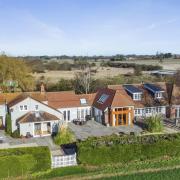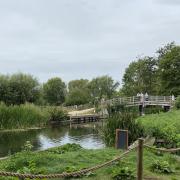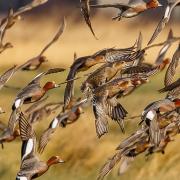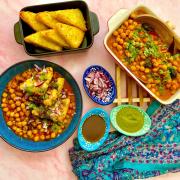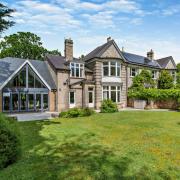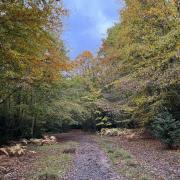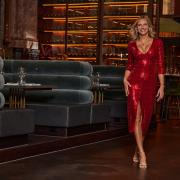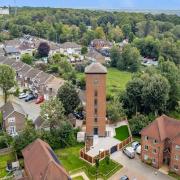After decades of industrial arable farming in Essex, Sam Squier and his wife Kate are taking a completely new direction.
The launch of their Wild and Rooted Farming brand is all about the sustainable, regenerative production of high-quality, home-reared beef – a process they describe as from 'farm to plate'.
Sam explains how the exciting, new approach benefits the environment, the cattle and those enjoying the taste of their pure Aberdeen Angus beef.
Q: Can you tell us a little about your farm?
My grandfather took over the farm at Great Waltham, near Chelmsford, just before the second world war. In the 1990s, my Dad decided to specialise in free-range Kelly Bronze Christmas turkeys alongside industrial, arable farming.
In 2008, I bought my first six pure Aberdeen Angus cattle, gradually building up the herd but still relying very much on artificial chemicals and fertilisers. That changed in 2018, when I discovered mob-grazing – moving the cattle every day to new pasture, giving the plants and ground time to recover.
As a trial, I planted 18 acres of herbal ley (a mix of herbs, grasses and legumes). It was so successful that now the wheat and rapeseed oil crops have gone and our entire 200 acres is herbal ley. We still have our turkeys, but they are now joined by our herd of 40 cattle.
Q: What is sustainable farming?

It’s where you don’t take more from the land than you put back in and you don’t use artificial fertilisers or other chemicals. In fact, if you were to come back to this farm in 100 years, the soil quality would be much better than it is now.
Herbal ley is a specific mix of 13 to 17 different species of plants: one third herbs, one third grasses and one-third legumes. The legumes are nitrogen fixing plants that save on artificial fertilisers; the herbs are a natural cattle wormer to save on medication and improve the health of the animals; the grass provides an excellent balanced diet for the cattle.
Q: Why is sustainable farming important?

Regenerative farming methods increase the number of worms, organic matter, bacteria and fungi, helping to promote biodiversity.
The roots of the plants stay in the ground, which improves the soil structure and, by stamping the grass into the ground, the cattle also stop the soil from becoming too dry, which is essential in this part of the country. If we can eliminate evaporation, then the plants are able to keep growing throughout the summer.
The rest period as we move the cattle gives the plants a chance to recover and flower again. There’s plenty of forage for pollinators and the farm is now alive with bees and insects from May to November.
Q: What else makes your meat production sustainable?
Our cattle are fed on natural grass rather than grain, which is manmade. We are very proud to have a Pasture for Life certification – a guarantee our cattle are 100 per cent grass fed.
The cows are born here and butchered locally in Essex, ensuring fewer food miles and supporting businesses within the county. We breed our own replacement heifers on the farm and all our winter feed and bedding come from the system we run. Our meat is sold direct to the customer, via collection or home delivery.
Q: What are the benefits of eating sustainable beef?

For starters, the flavour of our premium craft beef is incredible. Pure Aberdeen Angus cattle are renowned for their particularly well-marbled meat and good steaks and, because the cattle are totally grass fed, the meat is high quality and healthy. It’s full of omega-3s, it has lots of vitamins, heathy fats, and most importantly, no chemicals.
There is a premium on our beef but we are not trying to be the cheapest. We are trying to do what’s right for the land we are custodians of.
Our customers tell us they can taste the difference and, by buying our beef they are supporting small-scale farming that’s good for the cattle, the consumer and the environment.
Q: Are you seeing any differences yet to the land?

Yes. We now see a huge amount of more wildlife and insects as we walk around the farm. We are working with professionals to document, record and quantify how the land is changing.
Ultimately, we are trying to create a balance between the soil, the environment and the commercial side of the business – it has to work for all three of those. We want to be here 50 years from now and we are convinced this is the right approach.
For more information visit wildandrootedfarming.co.uk or @wildandrootedfarming




